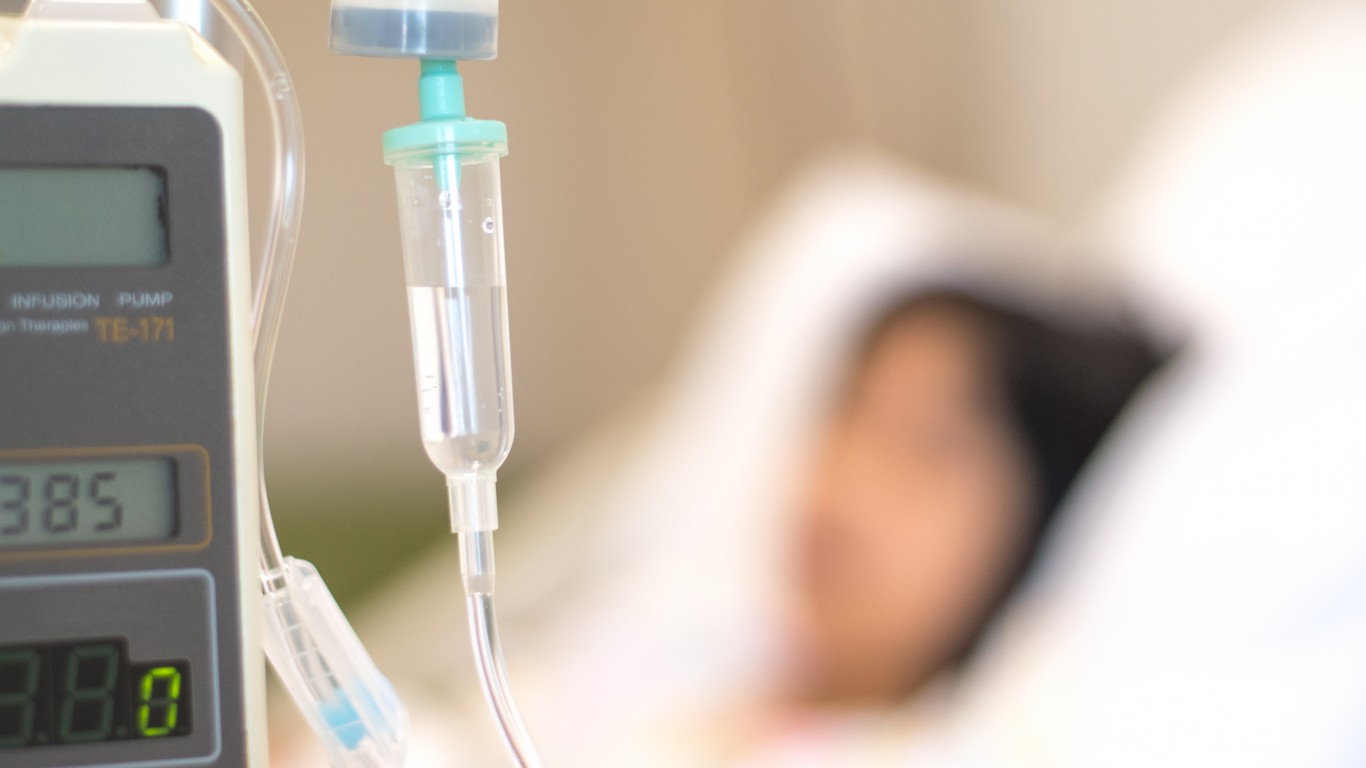Are biotech companies going to become the next big companies saddled with debt? Most likely not, but two debt offerings will stand out to investors here. The first was a $10 billion multi-part debt offering from Gilead Sciences Inc. (NASDAQ: GILD), which priced Wednesday night. The second is a currently undisclosed offering from Biogen Inc. (NASDAQ: BIIB). Source: Thinkstock
Source: Thinkstock
24/7 Wall St. tracked the Gilead offering on Wednesday before the pricing was out. The analyst community seemed to have a cautious stance from the fresh reports that were coming out at the time of the debt offering.
While some wonder if this means that Gilead is about to take on a large acquisition, the company ended its June quarter with about $14.667 billion in cash and liquidity, as well as close to $12 billion in debt. Now you can tack on close to $10 billion in debt and equity.
Gilead has a huge stock buyback plan already under way. It was a total of $20 billion, if you add the existing buyback plan, but a good portion of that already has been bought down. Gilead’s “use of proceeds” was for general corporate purposes, which it said “may include the repayment of debt, working capital, payment of dividends and the repurchase of our outstanding common stock pursuant to our authorized share repurchase program.”
The offering from Gilead stood out because the company had effectively no real concern about its existing debt load maturing until 2020. Most of its debt is out much further than that, and the new debt offering in a six-traunch deal that priced puts maturities in 2018 and 2020, but the bulk is farther out on the curve:
- $1.0 billion of 1.850% senior notes maturing in 2018
- $2.0 billion of 2.550% senior notes maturing in 2020
- $1.0 billion of 3.250% senior notes maturing in 2022
- $2.75 billion of 3.650% senior notes maturing in 2026
- $1.0 billion of 4.600% senior notes maturing in 2035
- $2.25 billion of 4.750% senior notes maturing in 2046
Biogen is making a splash here with a four-traunch debt offering, with the size not disclosed. What matters is that Biogen effectively has no real long-term debt worth noting as of the filing date. As of this filing, the only long-term debt maturity is a $570 million note due in 2018 — versus over $4 billion in cash and short-term and long-term investments.
Biogen’s “use of proceeds” section of the filing said:
We intend to use the net proceeds from the sale of the notes, together with cash on hand, to fund share repurchases of our common stock under our $5 billion stock repurchase plan and for working capital and other general corporate purposes.
Biogen just entered into a new credit facility agreement for $1.0 billion via a five-year unsecured revolving credit facility on August 28, but the company has yet to draw down any of that facility. Borrowings under that credit facility are available for working capital, capital expenditures, acquisitions and “other lawful corporate purposes.”
Moody’s announced that its rating for Biogen’s notes are Baa1, which is still investment grade, but the credit ratings agency revised Biogen’s outlook to Negative in the call. Moody’s said on the outlook:
The negative outlook reflects the substantial increase in Biogen’s financial leverage for general corporate purposes including share repurchases, occurring in tandem with flattening Tecfidera growth. While financial leverage will remain low, Biogen’s slower growth outlook raises the probability of debt-financed acquisitions, especially in the context of heavy acquisition activity sector-wide… The rating outlook is negative reflecting the risks related to weak Tecfidera growth and the potential for debt-funded acquisitions or share repurchases that could weaken the credit profile.
Tempering these strengths, diversity is weak because Biogen’s revenues are highly concentrated in the MS market, with over 80% of revenues from this single category for the foreseeable future. This concentration exposes Biogen to shifts in competitive dynamics and the potential for category-wide pricing pressure. The large pharmacy manager CVS Caremark announced that Biogen’s Avonex and Plegridy will not be covered in its Preferred Formulary beginning in 2016 for new patients, while existing patients will be grandfathered.
Investors do not appear to be worried at all on Biogen and Gilead’s debt offerings, even if ratings have been mixed by analysts.
Biogen shares were up 2.5% at about $311.11 Thursday morning, within a 52-week trading range of $265.00 to $480.18. That move is without knowing the formal size and without knowing the yields that will be paid against an unknown set of maturity dates.
Gilead shares were also up 2.4% at $106.30, against a 52-week range of $85.95 to $123.37.
Take This Retirement Quiz To Get Matched With An Advisor Now (Sponsored)
Are you ready for retirement? Planning for retirement can be overwhelming, that’s why it could be a good idea to speak to a fiduciary financial advisor about your goals today.
Start by taking this retirement quiz right here from SmartAsset that will match you with up to 3 financial advisors that serve your area and beyond in 5 minutes. Smart Asset is now matching over 50,000 people a month.
Click here now to get started.
Thank you for reading! Have some feedback for us?
Contact the 24/7 Wall St. editorial team.



